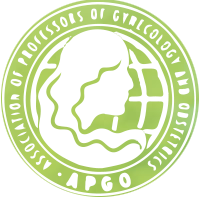UMEC Spotlight on Faculty Development: Celeste Royce, MD
Meet Celeste Royce, MD, of Harvard Medical School and Beth Israel Medical Center
Presenter at the 2017 Martin L. Stone, MD, Faculty Development Seminar
“Charting the Course: Designing a Fourth-Year Ob-Gyn Curriculum Using Entrustable Professional Activities”
 It’s not easy developing a curriculum to ensure medical students gain all the knowledge they need to succeed in the future. Celeste Royce, MD, certainly knows this, given her years of experience as a Clerkship Director, Boot Camp Course Director and Transitions to Clinical Clerkships Course Co-Director. She also knows it’s not easy to find resources to develop a program like this, so she used her contacts through APGO’s Academic Scholars and Leaders (ASL) Program to put together a session that helps others overcome this obstacle.
It’s not easy developing a curriculum to ensure medical students gain all the knowledge they need to succeed in the future. Celeste Royce, MD, certainly knows this, given her years of experience as a Clerkship Director, Boot Camp Course Director and Transitions to Clinical Clerkships Course Co-Director. She also knows it’s not easy to find resources to develop a program like this, so she used her contacts through APGO’s Academic Scholars and Leaders (ASL) Program to put together a session that helps others overcome this obstacle.
At the 2017 Martin L. Stone, MD, Faculty Development Seminar, Doctor Royce (along with Emily Willner, MD, and John Dalrymple, MD) presented on “Charting the Course: Designing a Fourth-Year Ob-Gyn Curriculum Using Entrustable Professional Activities (EPAs)” on Sunday, January 8, 2017, at the Hyatt Regency Indian Wells near Palm Springs, California.
APGO: Why did you choose this topic to present on?
Doctor Royce: I have designed a boot camp elective for MS4s and directed the course for four years. I oversee the post-clerkship clinical electives in Obstetrics and Gynecology and have designed three curricula for the boot camp, including patient safety/hand-off, wellness/resiliency and writing for Wikipedia.
APGO: What challenges did you encounter in developing your program? What was the solution?
Doctor Royce: The main challenges were, as always, money and time. The curricular challenges were more concrete: There were few resources available other than Michigan’s clinical curricula, so I used personal contacts developed through the APGO Scholars and Leaders program to share and work together to develop these curricula.
I was fortunate that many of my departmental colleagues are eager and capable teachers who volunteered time and materials for our course. Space and funding for materials were made available through the support of our department chair and the Shapiro Center for Medical Education at BIDMC.
We are now moving to standardize assessments using the EPAs as guiding principles. We were able to map boot camp sessions to the EPAs, and to look at the EPAs to help guide programming. We also used input from former students, current residents and faculty to help design the course material to meet not only our institutional expectations of incoming interns, but also to look at other residencies and their expectations.
APGO: What do you hope that those who attended your session will take away?
Doctor Royce: First, you don’t have to re-invent curricula, as more and more are available through APGO, MedED Portal and other resources. Additionally, we can improve and standardize the quality of our graduates by using standardized metrics, such as the EPAs.
Finally, curricular development is fun! Using gamification, simulation, role play and other relatively inexpensive, yet engaging, tools along with an active imagination can result in exercises your learners will enjoy, and you will enjoy teaching.
To learn more about APGO’s Academic Scholars and Leaders Program, visit the APGO website here. In 2018, APGO’s Martin L. Stone, MD, Faculty Development Seminar will be held from January 6–9 at Eau Palm Beach Resort & Spa in Manalapan, Florida.


